Planetary Science
-
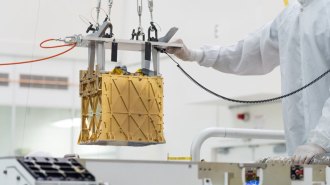 Planetary Science
Planetary ScienceNASA’s Perseverance rover split CO2 to make breathable air on Mars
An oxygen-making experiment on Perseverance shows that astronauts will one day be able to make air to breathe and, better yet, rocket fuel.
-
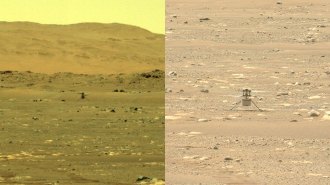 Planetary Science
Planetary ScienceNASA’s Ingenuity helicopter made history by flying on Mars
An autonomous helicopter just lifted itself into the air on Mars, marking the first time a vehicle has flown on a planet other than Earth.
-
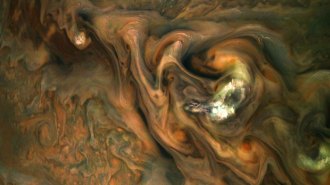 Planetary Science
Planetary ScienceHow the laws of physics constrain the size of alien raindrops
Physics limits the size of raindrops, no matter what they’re made of or what planet they fall on.
-
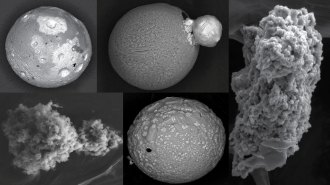 Planetary Science
Planetary ScienceEarth sweeps up 5,200 tons of extraterrestrial dust each year
Thousands of micrometeorites collected from Antarctica come from both comets and asteroids, a new study suggests.
By Sid Perkins -
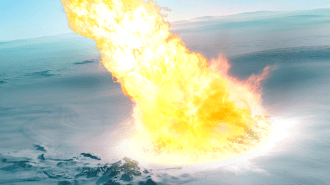 Planetary Science
Planetary ScienceA meteor may have exploded over Antarctica 430,000 years ago
Tiny spherules recovered from a mountaintop suggest a space rock broke apart midflight and sprayed debris across thousands of kilometers.
By Sid Perkins -
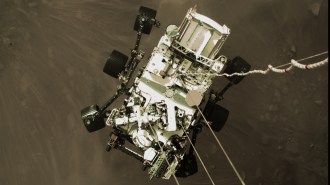 Space
Space50 years ago, experiments hinted at the possibility of life on Mars
In 1971, lab experiments suggested organic molecules could be made on Mars. Fifty years later, robots are searching for such signs of life on the planet itself.
-
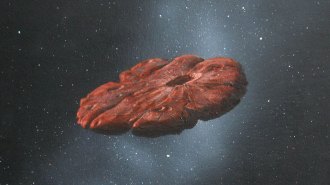 Space
Space‘Oumuamua may be a chip knocked off an icy, Pluto-like exoplanet
If the first interstellar visitor were a shard of nitrogen ice, it would explain some of its unusual behavior when it passed through our solar system.
-
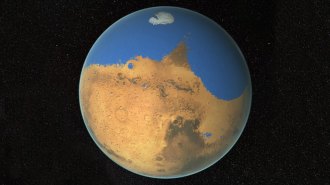 Space
SpaceMost of Mars’ missing water may lurk in its crust
Computer simulations of the fate of Mars’ water may explain why the Red Planet turned into a desert, when so little of its water has escaped into space.
-
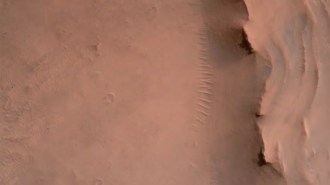 Planetary Science
Planetary ScienceWatch real video of Perseverance’s Mars landing
NASA’s Perseverance rover filmed its own landing on Mars. Here’s that video.
-
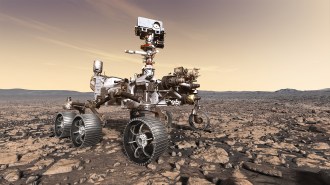 Planetary Science
Planetary ScienceNASA’s Perseverance rover has touched down on Mars
The spacecraft will arrive at Mars on February 18, joining missions from China and the United Arab Emirates.
-
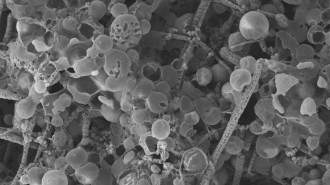 Earth
EarthFossil mimics may be more common in ancient rocks than actual fossils
Evidence of early life may be harder to preserve than pseudofossils — structures that form abiotically but resemble living remnants.
-
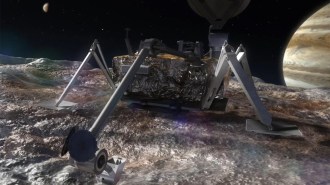 Space
SpaceHow future spacecraft might handle tricky landings on Venus or Europa
Scientists are getting inventive with ways to touch down on these worlds, where landers will face obstacles not seen elsewhere in the solar system.